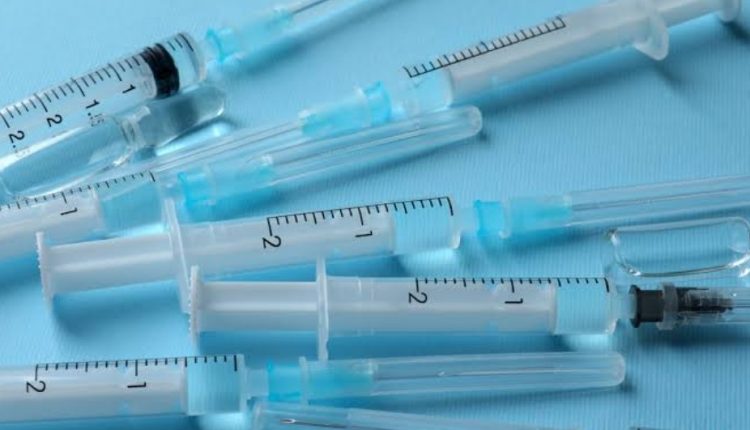Experts Encourage Safe Injection To Prevent Hepatitis C

A Professor of Public Health at the University of Ilorin, Kwara State, Tanimola Akande, said Nigeria will make progress in this fight against Hepatitis C if there are policies that would ensure safe injection practices in the country.
He described Hepatitis C as a dangerous blood borne infection that affects and causes enlargement of the liver, saying that there is the need for Nigeria to intensify screening and those found to be positive be given effective antiviral treatment.
Akande said Nigeria must boast of quality healthcare services and reduction in disease burden since the WHO said the country was on the part of ending Hepatitis C by 2030.
He said, “To promote massive screening of the populace, there must be accessible standard laboratories to all Nigerians. Of course, all the above measures will require funding higher than the current funding.”
Akande, who is a member of Expert Review Committee on Poliomyelitis Eradication Initiative and Routine Immunisation in Nigeria, said at the current pace of interventions, he doesn't see Nigeria meeting the 2030 target.
“However, it is difficult to predict when this will happen in Nigeria. It all depends on the seriousness of the various measures to achieve it and the behaviour of Nigerians as it relates to the risk factors,” he added.
The World Health Organisation says Hepatitis C is an inflammation of the liver caused by the Hepatitis C virus.
The virus can cause both acute and chronic hepatitis, ranging in severity from a mild illness to a serious, lifelong illness including liver cirrhosis and cancer.
A 2014 study sponsored by WHO, estimated that in 2010, up to 1.7 million people were infected with hepatitis B virus, up to 315 000 with hepatitis C virus and as many as 33, 800 with HIV through an unsafe injection.
A Consultant Orthopaedic Surgeon at the Abia State University Teaching Hospital, Aba, Abia State, Dr. Isaiah Abali, said that safe injection practices means measures taken in manner to ensure safe injections for patients, health care providers and others.
“Safe injection practices include the use of disinfectants to clean the area where injections will be given to prevent the transmission of blood borne pathogens to both patients and health care professionals,” he added.
He noted that the safe injection practices will help prevent Hepatitis C because the majority of the people contracted the disease from unsafe injection practices across the world.
Cloud Tag: What's trending
Click on a word/phrase to read more about it.
Sa\'adu Salau Naira Redesign David Oyerinola Adedunmoye Sarkin Malamai Azeez Bello Lanre Aremu Oko Erin Ilorin General Hospital Gbadeyan Gbadura Yomi Sheikh Ariyibi Omotoso Musa Danhawa Dar-Al-Handasah Consultants Air Peace Durbar Festival Durosinlohun Atiku TESCOM Michael Ologundea Idris Amosa Saidu Adamu Attah Timothy Akangbe Abdul-Rasheed Na\'Allah Aisha Ahman-Pategi Kolawole Bashirat Saka Adeyemo Musa Alhassan Buge Afonja Aliyu Muhammad Saifudeen PharmAccess Foundation Ibrahim Abiodun Ahmad Uthman Iyeru Grammar School Adolescent Girls Initiative For Learning And Empowerment Rex Olawoye Segun Adeniyi Roheemat Hammed KWASEIC Kazeem Gbolagade Abdulmalik Bashir Mopelola Risikatullahi Tsado Manman Abiodun Musa Aibinu Aiyedun Kwara 2015 Read With Me David Oyepinola Adedumoye Bola Iyabo Ibiyeye Adisa David Adesina Abdulfatai Baakini Christopher Ayeni Lai Mohammed Kwara State Infrastructure Development Fund Jare Olatundun Adanla-Irese Olabode George Towoju Temi Kolawole Ahmad Belgore Oko Kayode Yusuf Ahmed Ayinla Jimoh Firdaos Amasa Seun Bolaji Monsurat Omotosho Ganmo Power Sub-Station Umar Sanda Yusuf Lateef Ademola Olatunji Tsaragi Funmi Salau Aisha Buhari Ajakaye Buhari Amos Justus Sayo Special Agro-industrial Processing Zone Suleiman Alege Kuranga Oya State NTA Ilorin SARS Ilorin Anchor Men And Women


